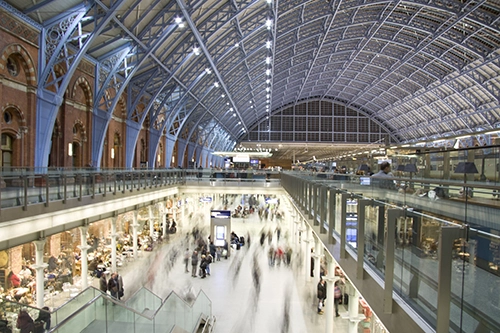
Whether you're commuting for work or heading to a meeting, a little preparation can make your journey more efficient, comfortable, and safe.
Go Digital
Digital tickets are now the default for most rail journeys. They help avoid queues at ticket machines and support contactless travel. There’s also an environmental benefit; unlike digital options, paper train tickets cannot be recycled. Going digital is a simple way to streamline your journey and reduce waste.
Plan Ahead
While seat reservations are no longer mandatory, they’re still recommended. Operators have improved reservation systems to avoid clustering passengers together. Even if you hold a flexible ticket, reserving a seat when booking gives you peace of mind and flexibility if plans change.
Travel Smart
Consider travelling outside peak hours or on quieter days. Services tend to be less crowded after peak periods, and travelling at off-peak times can reduce costs. A guide to quieter and busier travel times from key rail partners is available to help you plan.
Check Operator Guidance
Rail operators continue to maintain dedicated safety resource pages. These include updates on hygiene measures, travel advice, and any ongoing safety protocols. If you're unsure about current procedures, check with your operator before travelling.
Rail Industry Safety Pledge
The Rail Delivery Group (RDG), representing all UK rail operators, introduced a safety pledge during the pandemic that remains in place today. Key commitments include:
- Enhanced cleaning across trains and stations.
- Easy access to hand sanitiser for passengers.
These measures have had a measurable impact. Tests conducted by Imperial College London found no traces of coronavirus at several major stations and onboard services.
Face Coverings
Face coverings are no longer mandatory on public transport in England, but passengers are still encouraged to wear them. In Scotland and Wales, face coverings remain a legal requirement, including on cross-border services. They are also required on the London Underground, so be sure to check local rules before travelling.
Operator Innovations
During the pandemic, operators like LNER focused on improving customer experience while maintaining safety. Their efforts led to high satisfaction rates among travellers. One recent innovation is LNER’s at-seat ordering service, allowing passengers to scan a QR code and have food and drinks delivered directly to their seat.
David Horne, Managing Director of LNER, commented:
“We’ve worked hard to make rail travel more accessible, enjoyable, and flexible. Our new tools and services are designed to enhance the experience and support sustainable long-distance travel.”

.avif)



